So you want your kids to learn good money habits? You want them to demonstrate how to handle money responsibly as they get older?
I get questions about this on a daily basis, often multiple times a day.
“Nick, how can I teach my kids about money?”
“What resources are out there to help my kids learn about money?”
“What principles should I be sharing with my kids so they become responsible with money?”
There are tons of resources, courses, videos, games, and books out there. Soon I’ll begin aggregating them for you in one place, right here on TeachMyKidsMoney.com!
But that’s not the best place to start.
Wait, what?
Yep, I don’t think that playing a game with your kids about money is the ideal place to begin. Sure, it’s a definite way to have conversations about money you wouldn’t otherwise have. We love playing games in our house!
But you want to know the best way to teach your kids about money?
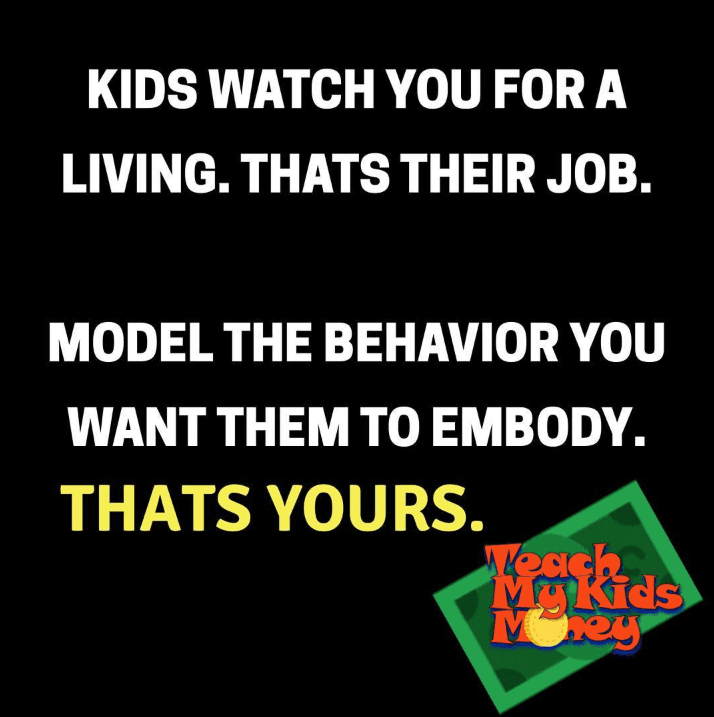
Kids watch you for a living. That’s their job. Model the behavior you want them to embody. That’s yours.
That’s right, the best way to teach your kids about money is to model the behavior you want them to follow. If you’re walking through a mall swiping your credit card in six different stores, buying lunch at the food court, grabbing dessert on the drive home, and then going and watching football for three hours…that’s the behavior your child will learn is the norm.
Now, there’s absolutely nothing wrong with any of these behaviors. I’m not telling you not to do any of these things. It’s YOUR life, not mine! Ask yourself, though, if the way you’re behaving day in and day out matches the intention you have for your kids and their future.
This principle hits close to home for me. This post is as much for me as it is for you.
Just yesterday while walking through the grocery store for a halfway-through-the-week-stock-up for bananas, grapes, and yogurt, the SweetTarts caught my eye. How can I walk by them and NOT buy them? My mouth was watering before I knew what hit me. I HAD to buy them. And, yes, in case you were wondering, that’s sarcasm.
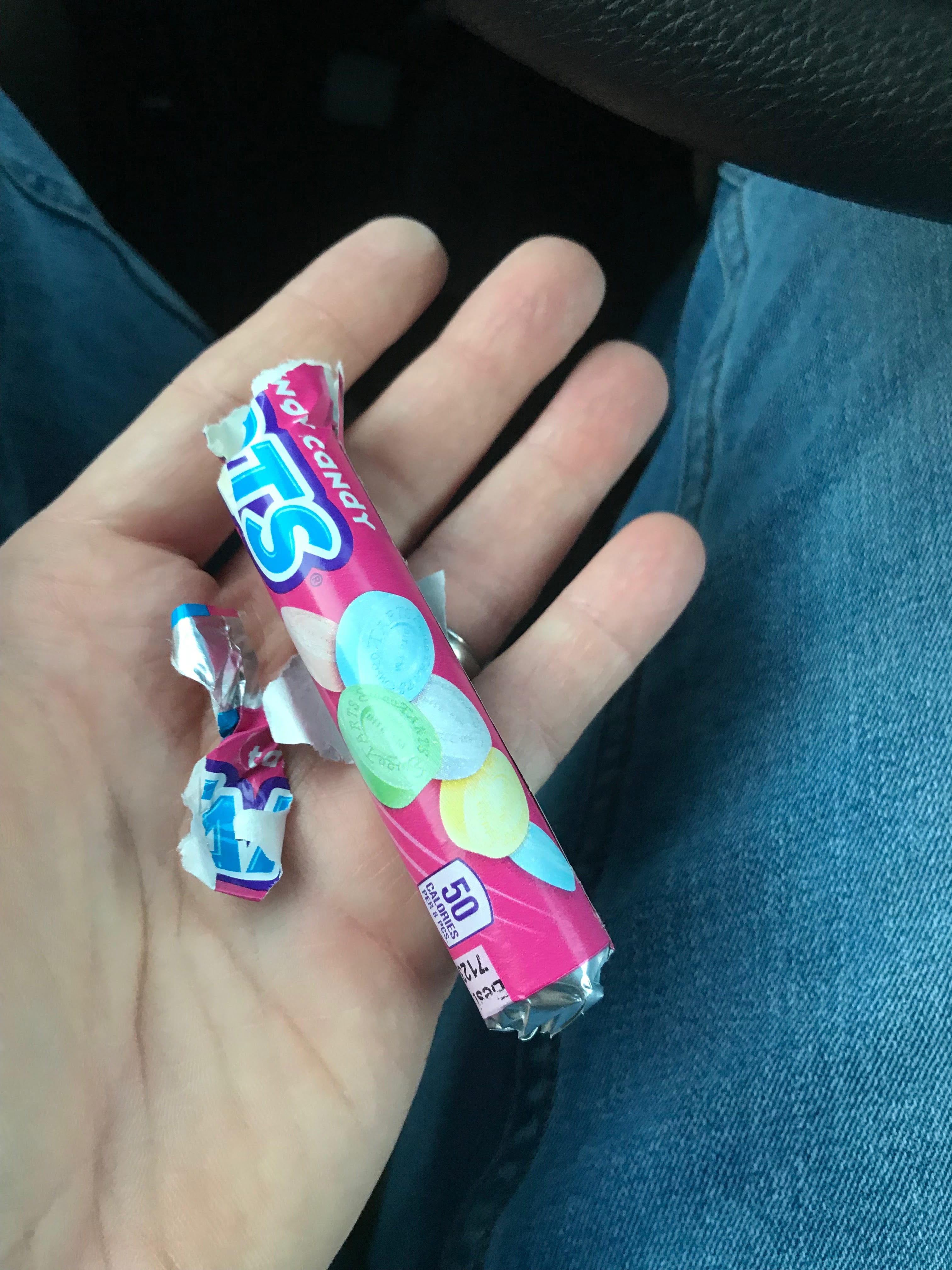
We get out to the car, already having popped a few of the deliciously sweet and sour candies in my mouth, and my five year old asks me, “Daddy, how much money do SweetTarts cost?”
Loaded question. How do I navigate this one, right?
Here I am trying to teach my kids about money — lessons anywhere and everywhere, jars to budget their money into categories, honest conversations about allocating their money to the things they really want or need and not trivial items — and I allowed myself to get caught red-handed.
“Good question, buddy! This roll of SweetTarts cost one dollar. Can you tell me more about your question?”
“I like when you buy SweetTarts for us. I’m happy I don’t have to spend my own dollars on them.”
“I’m glad you like it. I get them from our spending money so you don’t have to.”
His question was completely innocent…but it was enough to make me stop and analyze the behavior.
This behavior thing is hard!
Do I want them wasting their hard earned money on candy? On completely trivial things? In some cases, the answer is yes. Check out my post on letting your kids waste their money.
That said, a daily or weekly spending habit on sugar probably isn’t going to serve them well in the long run. There’s more and more data to show that sugar is causing some crazy health problems for our country.
As I write this out, I’m realizing I need to kick that habit. I mentioned SweetTarts in this post about motivation and habits, as well. That’s a bit too many mentions of candy to be comfortable.
So this post is my public commitment to one small habit shift to better model the behavior I want my kids to grow up with.

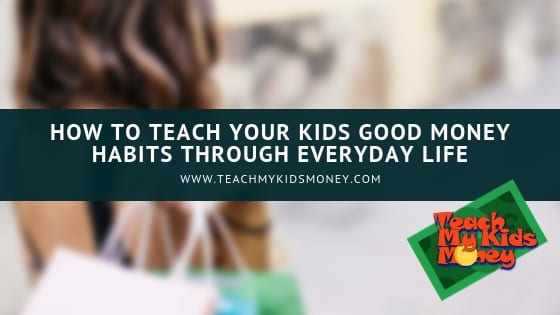
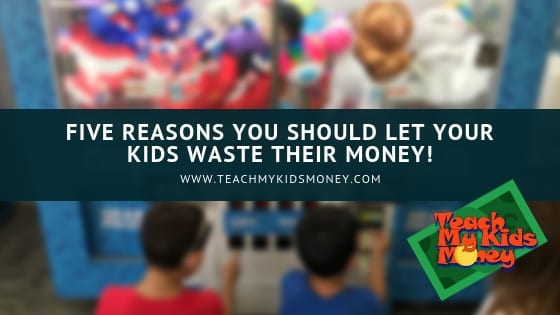


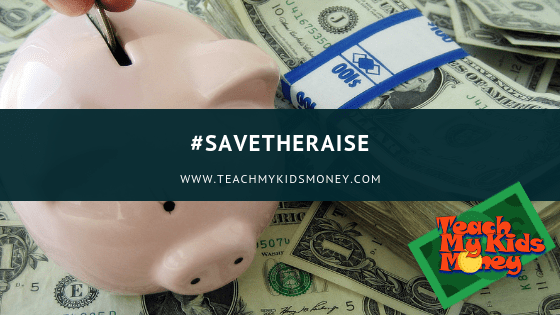


That’s a nice line, that kids watch you for a living, that’s their job. And it’s really true. You can’t say one thing and do another, they’ll call you out on it every time.
I have a nice post about how to raise financially savvy kids and it’s all about giving them an allowance and letting them pay for things, even candy. There’s no better teacher than experience and you’d be surprised how quickly kids “get it” once they are using their own funds.
Nice post and best of luck!
Thanks, Jon! Isn’t it amazing what you can do with experience as a teacher? Love your post, too. Thanks for sharing!